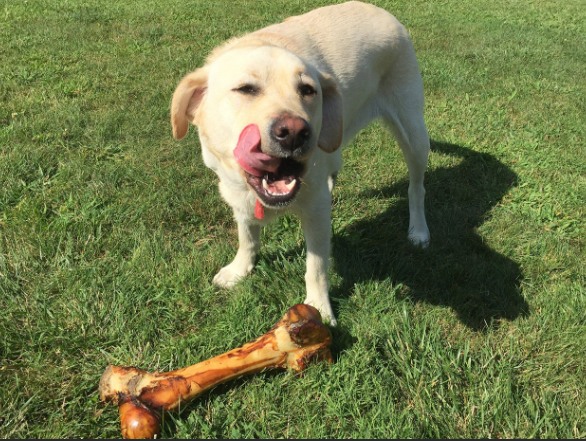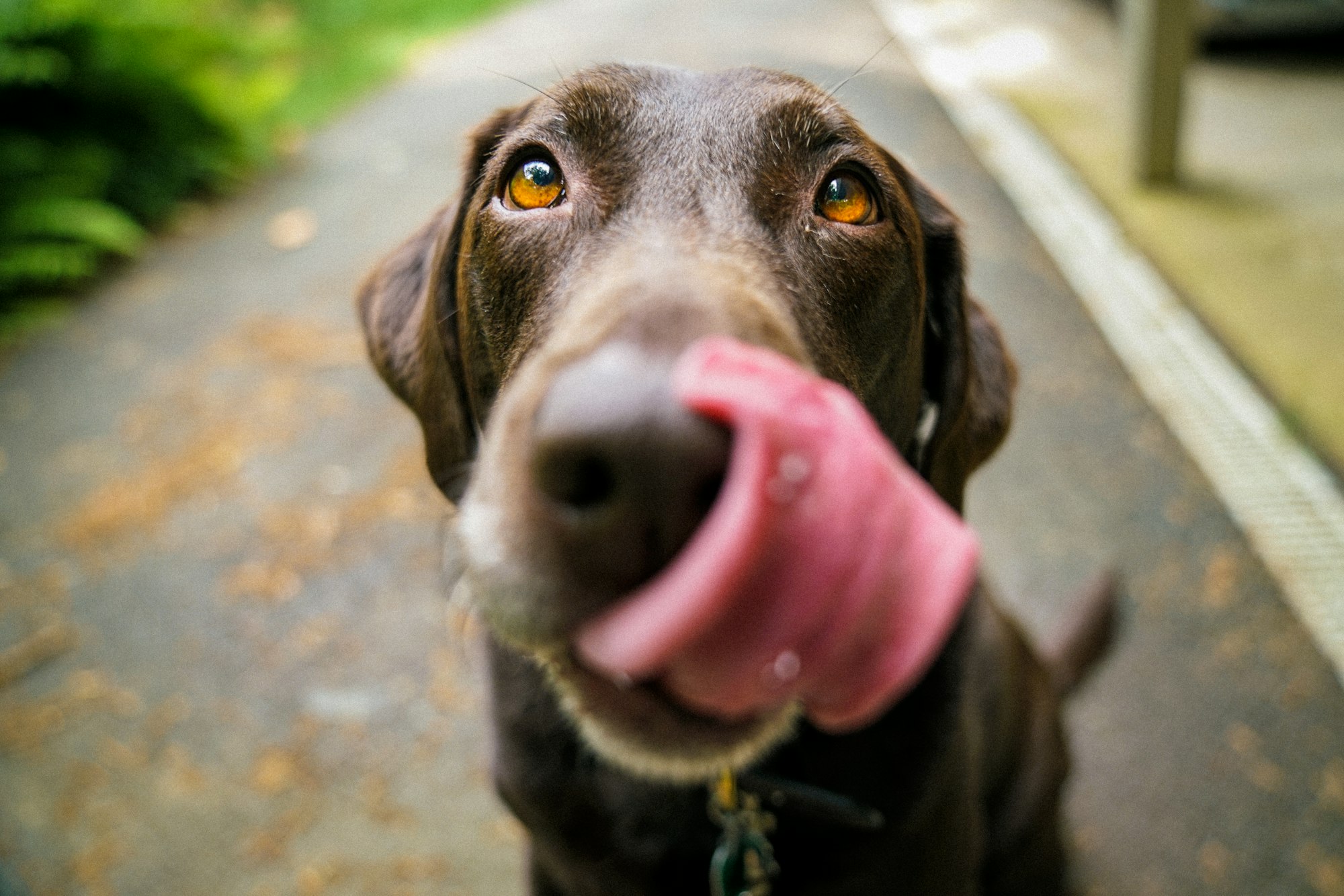Discover the top-rated bones for dogs that promote dental health, provide mental stimulation, and offer safe chewing options. This guide explores various types of bones, their benefits, and important considerations for choosing the best bones for your furry friend.
When it comes to keeping our canine companions happy and healthy, providing them with the best bones is vital to their overall well-being. Bones satisfy a dog's natural urge to chew and offer numerous benefits, such as promoting dental hygiene, alleviating boredom, and providing essential nutrients.
This comprehensive guide will explore the world of dog bones, highlighting the top choices and essential considerations for selecting the best bones for your furry friend.

The Importance of Chewing for Dogs and the Role of Best Bones for Dogs
Chewing is a natural behavior for dogs and is crucial to their overall well-being. It serves several important purposes that benefit their physical and mental health. Understanding the significance of chewing and providing the best bones for dogs can greatly contribute to their happiness and quality of life.
- Dental Health: Chewing is an effective way to promote dental hygiene in dogs. When dogs chew on bones, it helps remove plaque and tartar buildup from their teeth, reducing the risk of dental issues such as gum disease, tooth decay, and bad breath. The action of chewing also stimulates saliva production, which helps naturally clean teeth and prevents the formation of dental problems.
- Mental Stimulation: Chewing provides dogs with mental stimulation and helps alleviate boredom and anxiety. Dogs have an instinctual need to chew, and providing them with appropriate bones satisfies this natural urge. Engaging in chewing activities can help keep their minds occupied, prevent destructive behaviours, and provide an outlet for excess energy.
- Jaw Strength and Muscle Development: Chewing on bones helps strengthen the jaw muscles in dogs. Gnawing and exerting force on bones promotes muscle development and maintains their jaws' overall strength and health. This is particularly important for growing puppies, as chewing helps develop their jaw structure and prepares them for adult teeth.
- Stress Relief: Chewing can serve as a stress-relieving activity for dogs. It provides a calming effect and can help them relax and unwind. Dogs may turn to chewing during times of anxiety or when they are feeling uneasy. By providing them with the best bones for dogs, you can offer a healthy and productive outlet for their stress and help them find comfort and relaxation.
- Natural Behaviour: Chewing is an inherent behavior for dogs, and denying them this activity can lead to frustration and behavioral issues. Offering appropriate bones allows dogs to engage in their natural behaviour and fulfil their instinctual need to chew. By providing them with the best bones, you can redirect their chewing behaviour to safe and suitable items and prevent them from damaging household items or furniture.
When selecting the best bones for dogs, it is essential to consider factors such as size, breed, age, and specific needs. Different types of bones, such as raw bones, dental chews, antlers, synthetic bones, or natural treats, offer various benefits and cater to different preferences.

By understanding the importance of chewing for dogs and providing them with the best bones suited to their needs, you can ensure their dental health, mental stimulation, and overall happiness.

Different Types of Bones for Dogs
Raw Bones
Raw bones, such as beef knucklebones, marrow bones, and chicken wings, are popular among dog owners. They offer excellent mental and physical stimulation and natural teeth cleaning.
However, choosing the appropriate size and type of raw bone is important to prevent any potential choking hazards or dental fractures. Supervision is crucial when giving raw bones to your dog.
Dental Chews
Dental chews promote oral health while providing a satisfying chewing experience. These bones often have ridges or textures that help remove plaque and tartar from your dog's teeth. Look for dental chews made from natural and easily digestible ingredients, such as sweet potatoes or rawhide alternatives, to ensure your dog's safety and avoid any potential digestive issues.
Antlers and Horns
Antlers and horns like deer or elk antlers are long-lasting and provide an excellent chewing experience. They are rich in nutrients like calcium and can help clean your dog's teeth. However, choosing appropriately sized antlers and monitoring your dog's chewing is crucial to prevent any dental injuries or splintering.
Synthetic Bones
Synthetic bones, such as nylon or rubber, are durable and safe alternatives to natural bones. They come in various shapes, sizes, and textures, giving your dog hours of chewing pleasure. Look for synthetic bones free from harmful chemicals like BPA or phthalates and designed specifically for dogs.
Natural Bones and Treats
Natural bones and treats, such as bully sticks or dried trachea, are popular choices that offer a range of flavors and textures. These bones are often made from real animal parts and can provide entertainment and mental stimulation for your dog.

However, it is important to ensure they are sourced from reputable manufacturers and appropriately sized to avoid choking hazards.
Factors to Consider When Choosing Bones
Size and Breed Considerations
The size and breed of your dog play a significant role in determining the appropriate bone size. Large dogs may require larger bones to satisfy their chewing needs, while small dogs may need smaller bones to avoid potential choking hazards. Consider your dog's jaw strength and overall size when selecting bones.
Bone Safety
Safety should be a top priority when choosing bones for your dog. Avoid bones that can splinter easily or have sharp edges that may cause injuries. Always supervise your dog while chewing to ensure they do not swallow large pieces or break off fragments that can lead to choking or intestinal blockages.
Dental Health Benefits
Certain bones, such as raw bones or dental chews, are designed to improve your dog's dental health. They can help remove plaque and tartar buildup, freshen breath, and promote healthy gums. Consult with your veterinarian to determine which type of bone would be most beneficial for your dog's oral hygiene.
Allergies and Sensitivities
If your dog has known food allergies or sensitivities, choosing bones free from those allergens is crucial. Read the ingredient list carefully and opt for bones from limited ingredients or hypoallergenic alternatives to avoid potential adverse reactions.
Age and Activity Level
Consider your dog's age and activity level when selecting bones. Puppies may require softer bones to accommodate their developing teeth, while more active dogs may benefit from durable bones that provide a longer-lasting chewing experience. Always choose bones that are appropriate for your dog's stage of life.
The Best Bones for Dogs
Various factors must be considered when selecting the best bones for dogs to ensure their safety, health, and enjoyment. Different types of bones offer unique benefits and cater to specific preferences and needs.
By understanding the options available and their advantages, you can make an informed decision and provide your furry friend with the best bones suited to their requirements.
Best Raw Bones for Dogs
Raw bones are popular among dog owners as they provide mental and physical stimulation while promoting dental health. The best raw bones for dogs include:
- Beef Knucklebones: These large, weight-bearing bones are ideal for medium to large dogs. They offer a satisfying chewing experience and provide excellent mental and dental stimulation.
- Raw Chicken Wings: Suitable for smaller dogs or as an introductory bone, raw chicken wings offer a softer chewing experience. They are rich in nutrients and can be a great option before moving on to larger bones.
Top Dental Chews for Dogs
Dental chews promote oral health while providing a satisfying chewing experience. The best dental chews for dogs include:
- Greenies Dental Chews: These veterinarian-recommended treats are known for reducing plaque and tartar buildup. They come in various sizes and flavours to suit different breeds and preferences.
- Whimzees Dental Chews: Made from natural ingredients, these dental chews feature unique shapes and textures that help clean your dog's teeth. They are available in sizes suitable for different breeds and provide a tasty and beneficial chewing experience.
Recommended Antlers and Horns for Dogs
Antlers and horns are long-lasting and provide dogs with an excellent chewing experience. The best antlers and horns for dogs include:
- Deer Antlers: These natural chews are rich in nutrients like calcium and provide a durable chewing option for dogs. They are available in different sizes to cater to various breeds and sizes.
- Water Buffalo Horns: These protein-rich chews offer an alternative to traditional antlers. They are durable and suitable for dogs of all sizes, providing an engaging chewing experience.
Preferred Synthetic Bones for Dogs
Synthetic bones offer a safe and durable alternative to natural bones. The best synthetic bones for dogs include:
- Benebone Wishbone: Made from nylon, the Benebone Wishbone is designed to withstand heavy chewing. It has various sizes to accommodate different breeds and provides a long-lasting chewing experience.
- Kong Classic Dog Toy: This popular rubber toy can be filled with treats, providing mental stimulation while satisfying your dog's chewing needs. It is available in different sizes and can be versatile and engaging.
Excellent Natural Bones and Treats for Dogs
Natural bones and treats offer a range of flavors and textures to keep dogs entertained. The best natural bones and treats for dogs include:
- Bully Sticks: These highly digestible protein-rich treats offer a satisfying chewing experience. They come in various sizes to suit different breeds and preferences.
- Dried Trachea: A natural source of glucosamine and chondroitin, the dried trachea can provide joint support while keeping your dog entertained. They are suitable for dogs of all sizes and offer a unique texture.
When choosing the best bones for dogs, consider size, breed, age, and specific preferences. It is important to supervise your dog while they chew and ensure the bones are appropriate for their needs. By selecting the best bones suited to your furry friend, you can provide them with a safe, enjoyable, and beneficial chewing experience.
Tips for Introducing the Best Bones for Dogs
Introducing bones to your dog requires careful consideration and proper guidance to ensure a positive and safe experience. By following these tips for introducing the best bones for dogs, you can help your furry friend develop healthy chewing habits and enjoy the benefits of this natural behavior.
- Start with Appropriate-sized Bones: Choose bones suitable for your dog's size and chewing capabilities. Opt for smaller bones for small dogs, while larger dogs may require larger bones to satisfy their chewing needs. Providing bones that are too small may pose a choking hazard, while bones that are too large can be difficult for your dog to handle.
- Supervise Chewing Sessions: Always supervise your dog while they are chewing bones, especially during the initial introduction. This allows you to monitor their behavior and ensure they are chewing safely. It also provides an opportunity to intervene if any issues arise, such as excessive aggression or attempts to swallow large chunks of the bone.
- Gradually Increase Chewing Duration: Start with shorter chewing sessions and gradually increase the duration as your dog becomes more comfortable and accustomed to the bones. This allows their jaws and teeth to adapt to the chewing activity without straining or causing discomfort.
- Rotate Different Types of Bones: Dogs may become bored with the same type of bone over time. To keep them engaged and interested, rotate different types of bones, such as raw bones, dental chews, or synthetic options. This variety provides mental stimulation and prevents them from fixating on a single bone.
- Use Positive Reinforcement: Encourage and reward your dog for appropriate chewing behavior. Praise and offer treats or verbal affirmation when they engage with the bone in a safe and controlled manner. Positive reinforcement helps reinforce the desired behavior and encourages them to continue chewing on the bones provided.
- Consider Your Dog's Preferences: Dogs have individual preferences regarding the texture, flavor, and type of bones they enjoy. Observe your dog's response to different bones and take note of their preferences. Some dogs may prefer softer bones, while others may enjoy the challenge of more durable options. By considering their preferences, you can offer bones that they find enticing and enjoyable.
- Seek Veterinary Advice if Needed: If you have concerns about introducing bones to your dog or if your dog has specific health conditions or dietary restrictions, consult with your veterinarian. They can provide personalized guidance and recommend the best bones for your dog's needs.
Following these tips for introducing the best bones for dogs can ensure a positive and safe experience for your furry friend. Remember to prioritize their safety, supervise their chewing sessions, and provide appropriate options that cater to their size, preferences, and chewing capabilities.
Conclusion
Choosing the best bones for your dog is crucial for their overall health, dental hygiene, and mental well-being. Whether you opt for raw bones, dental chews, antlers, synthetic bones, or natural treats, consider your dog's size, breed, age, and specific needs.
Always prioritize safety and supervise your dog during chewing sessions. By providing your furry friend with high-quality bones, you can ensure they enjoy the many benefits of chewing while keeping them healthy and happy for years.






